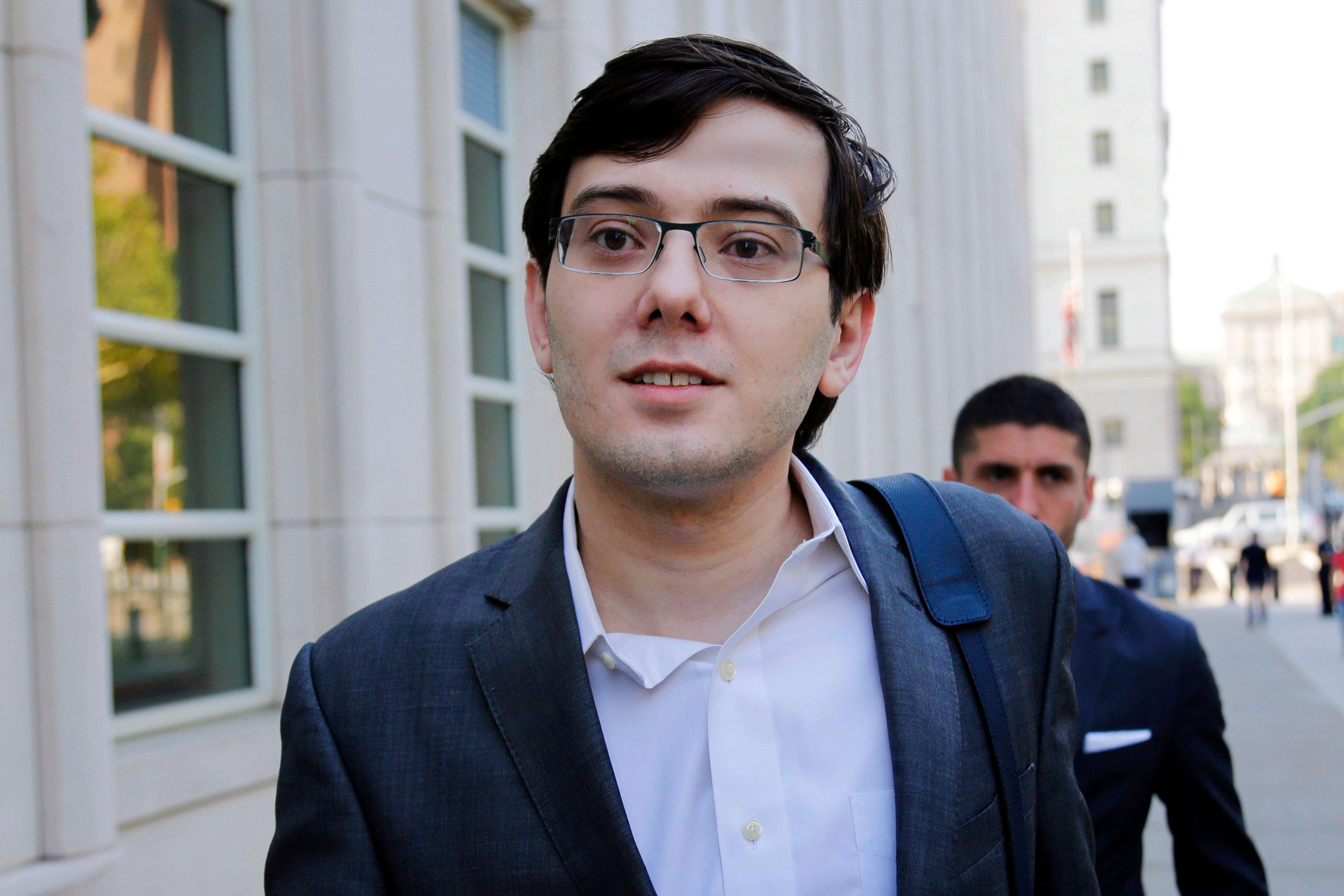'Pharma Bro' Shkreli loses 2nd bid for early prison release
A federal judge has rejected convicted pharmaceutical executive’s Martin Shkreli’s second request to be let out of prison early, showing skepticism about his claim in court papers that mental health issues have weakened his immune system and made him more susceptible to contracting the coronavirus

That’s another no for the “Pharma Bro.”
A federal judge has rejected convicted pharmaceutical executive’s Martin Shkreli’s second request to be let out of prison early, showing skepticism about his claim in court papers that mental health issues have weakened his immune system and made him more susceptible to contracting the coronavirus.
U.S. District Judge Kiyo Matsumoto said in a 12-page ruling on Friday that Shkreli again failed to demonstrate extraordinary and compelling factors that would require a sentence modification, such as release under home confinement rules designed to move vulnerable inmates out of institutions during the pandemic.
Matsumoto, the same judge that ruled against Shkreli in May, said the 37-year-old presented no evidence to support his claims and that a mental health practitioner who evaluated him found him to be stable.
Matsumoto also rejected the argument that Shkreli should be let out because coronavirus-related lockdowns were impeding his ability to communicate with the lawyers representing him in a civil lawsuit brought by the Federal Trade Commission. Matsumoto noted that Shkreli recently had a two-hour Zoom session with his lawyers, as well as several phone calls up to an hour in length.
Shkreli’s lawyer, Benjamin Brafman, declined to comment.
The low-security prison in Allenwood, Pennsylvania, where Shkreli is locked up has seen an increase in coronavirus cases among inmates and staff, with 26 inmates and 14 staff members currently testing positive.
Prosecutors said that, as of Jan. 6, there were no positive cases in Shkreli’s housing unit. In her ruling, Matsumoto wrote that Shkreli is a “relatively young and healthy man” and won’t be at high risk of severe complications if he were to contract the disease.
Shkreli is serving a seven-year prison sentence for a 2017 conviction for lying to investors about the performance of two hedge funds he ran, withdrawing more money from those funds than he was entitled to get, and defrauding investors in a drug company, Retrophin, by hiding his ownership of some of its stock.
Shkreli, who was ordered to forfeit $7.3 million as part of his sentence, is due to be released from prison in September 2023.
Shkreli first gained notoriety by buying the rights to a drug used to treat an infection that occurs in some AIDS, malaria and cancer patients and raising the price from $13.50 to $750 per pill. He is also known for attacking critics on social media and offering a bounty to anyone who could give him one of Hillary Clinton’s hairs.
In his original request for compassionate release, Shkreli asked to be let out of prison for three months to put his background “as a successful two-time biopharma entrepreneur” to work researching a coronavirus treatment “under strict supervision.”
Matsumoto rejected that, relaying concerns of probation officials that Shkreli’s claim that he could develop a cure for coronavirus that “so far eluded the best medical and scientific minds in the world working around the clock” is “delusional self-aggrandizing behavior.”
Bookmark popover
Removed from bookmarks